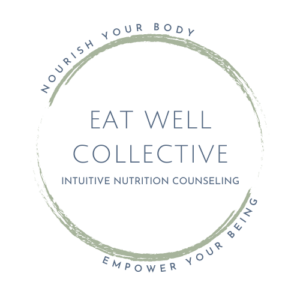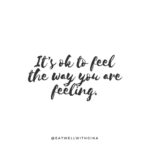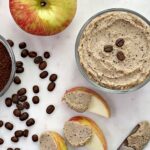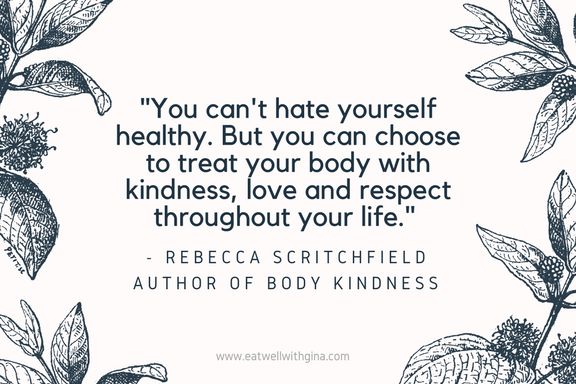
Guest blog post by Natalie A. Asayag, MSW, LSW, founder of Renew Wellness Psychotherapy
We’ve all been there. With a quick glance in the mirror, an automatic thought will flash through the mind harshly pronouncing, “ugh – you look fat” or, “you’re not thin enough to wear this.” How about the perpetual, “I’ll wear that outfit after I lose five pounds” or “I’ll ‘treat’ myself to [insert food here] when I have a ‘good’ day of eating.”
The concept of body kindness, the unbridled acceptance of our bodies, regardless of size and social standards, is intimidating for many. Sometimes it feels as though it’s a necessity to clutch negativity closely for fear of the unknown – the possibility that a few pounds may add up around the waistline, control over food may be lost or judgment will be inevitable from a friend group. It takes time, energy and exploration to think through and understand why these powerful thought patterns are present and held so close. While this exploration process is challenging, it provides the powerful opportunity to free oneself of limiting, restricting thoughts and allows one to genuinely pursue body kindness with the understanding that everyone deserves to be happy in their body, no matter the number on the scale or the size of the clothing.
A wonderful place to start, resume, or check-in with your body kindness practice is to ask yourself the following questions:
Body Kindness & Exercise:
- Ask yourself: Do I feel guilty if I don’t exercise? Am I exercising to impress someone – a friend, a partner, a teammate, a coach — instead of exercising for me?
- Now ask yourself: What movement makes me feel happy or joyful? What movement feels good in my body? What if I engage in movement that I enjoy, as opposed to what I feel I “should” be doing?
Body Kindness & Food:
- Ask yourself: Do I create food rules for myself? Do I have a mental “good” and “bad” food list?
- Now ask yourself: What would it feel like to let go of these rigid food rules? Would I be able to enjoy myself more when thinking about food in general and also while attending events where food is present?
Body Kindness & Image
- Ask yourself: What do I say to myself when I look in the mirror? When I’m trying on new clothes? Is there a loud, judgmental voice? A quiet bully?
- Now ask yourself: Is there a way I can be kinder to myself? Do I give myself permission to be kind to myself? Why do I feel I need to look a certain way to feel good?
Asking yourself these questions will shed light on your inner dialogue. Many go about their day with a thought process which covertly attacks their actions and body. It’s not easy to “tune” into these automatic thoughts, but allowing oneself to sit and take inventory will provide great insight. Once you have identified where you can be kinder to yourself, take time to think of ways to do just that. You don’t necessarily need to act on these right away, as it’s likely important for you to take time to work through these thoughts and gain a better understanding of the stubborn fears which won’t allow you to challenge negative thoughts. Sometimes these answers are simple and other times they’re quite complex. Please know, both Gina and I are here to support you, as well as many other valuable resources. I recommend Rebecca Scritchfield’s Body Kindness book for direct, kind guidance and Kelsey Miller’s memoir, Big Girl: How I Gave Up Dieting And Got A Life to learn about another’s experience with food, dieting and body kindness.
Give yourself permission to explore body kindness, even if it’s just in five-minute increments. And the next time you glance into the mirror, throw yourself a compliment, because you deserve to be happy in your body!
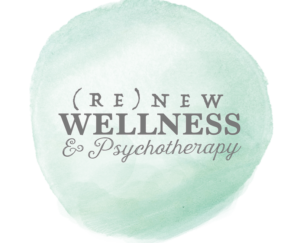 Natalie is the Founder and Co-Owner of Renew Wellness & Psychotherapy, LLC, a progressive boutique therapy practice located in historic downtown Easton, Pennsylvania. Her approach to therapy is to serve her clients’ individual needs as they are presented through the use of multiple modalities such as psychodynamic, cognitive behavioral therapy and solution-focused therapies. Much of her work focuses on disordered eating/eating disorders, anxiety and depression, body kindness, self-compassion and mindfulness. Natalie most recently presented at the 2017 PA-NASW Social Work Conference, focusing on the intersection of substance abuse and eating disorders and is an iadep Institute Continuing Education Webinar Series 2018 presenter. She finds great joy in helping clients reclaim their sense of self through the promotion of positive self-worth.
Natalie is the Founder and Co-Owner of Renew Wellness & Psychotherapy, LLC, a progressive boutique therapy practice located in historic downtown Easton, Pennsylvania. Her approach to therapy is to serve her clients’ individual needs as they are presented through the use of multiple modalities such as psychodynamic, cognitive behavioral therapy and solution-focused therapies. Much of her work focuses on disordered eating/eating disorders, anxiety and depression, body kindness, self-compassion and mindfulness. Natalie most recently presented at the 2017 PA-NASW Social Work Conference, focusing on the intersection of substance abuse and eating disorders and is an iadep Institute Continuing Education Webinar Series 2018 presenter. She finds great joy in helping clients reclaim their sense of self through the promotion of positive self-worth.
